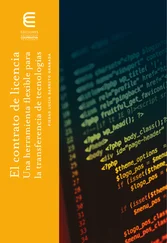Radwa Ashour - Granada
Здесь есть возможность читать онлайн «Radwa Ashour - Granada» весь текст электронной книги совершенно бесплатно (целиком полную версию без сокращений). В некоторых случаях можно слушать аудио, скачать через торрент в формате fb2 и присутствует краткое содержание. Год выпуска: 2003, ISBN: 2003, Издательство: Syracuse University Press, Жанр: Современная проза, Историческая проза, на английском языке. Описание произведения, (предисловие) а так же отзывы посетителей доступны на портале библиотеки ЛибКат.
- Название:Granada
- Автор:
- Издательство:Syracuse University Press
- Жанр:
- Год:2003
- ISBN:9780815607656
- Рейтинг книги:5 / 5. Голосов: 1
-
Избранное:Добавить в избранное
- Отзывы:
-
Ваша оценка:
- 100
- 1
- 2
- 3
- 4
- 5
Granada: краткое содержание, описание и аннотация
Предлагаем к чтению аннотацию, описание, краткое содержание или предисловие (зависит от того, что написал сам автор книги «Granada»). Если вы не нашли необходимую информацию о книге — напишите в комментариях, мы постараемся отыскать её.
Granada — читать онлайн бесплатно полную книгу (весь текст) целиком
Ниже представлен текст книги, разбитый по страницам. Система сохранения места последней прочитанной страницы, позволяет с удобством читать онлайн бесплатно книгу «Granada», без необходимости каждый раз заново искать на чём Вы остановились. Поставьте закладку, и сможете в любой момент перейти на страницу, на которой закончили чтение.
Интервал:
Закладка:
Between the time he awoke until drowsiness overcame him, Naeem saw the girl he was going to marry, the daughter of that man. She resembled the one he had seen that long-ago day near Granada. The one who stole his heart. It was astonishing how much they looked alike. She wasn’t naked, but like her was dressed in a white robe.
“Your eyes are getting heavy with sleep, Naeem. Why don’t you go off to bed, my son?”
Naeem opened his eyes wide and responded, “Not at all, Father. I don’t feel like sleeping just yet.”
Father Miguel smiled and shook his head. “You fell asleep and perhaps you were dreaming. My voice must have awakened you.”
“Father Miguel, may I ask you something?
“Go ahead, my son.”
“What are you writing? What exactly are you writing?”
“I’m writing, I mean, I wrote the story from the beginning. I wrote about Christopher Columbus’s four voyages, the difficulties he encountered and the successes he achieved. Now, this past month, I’m writing about the island and its inhabitants. I’m describing the climatic conditions over the course of the year, and I’m writing down my observations about the different species of plants, birds, and animals. After that, I’ll write about the people. I’ll describe their physical characteristics, their way of life, their thoughts and beliefs.”
“But…” Naeem stuttered. “How do you know about their thoughts and beliefs when you haven’t spoken directly to them?”
“I observe their behavior, and I compare my observations with those of others, and from that I deduce their thoughts and beliefs.”
“Are you writing about those other things as well, Father?”
“Yes, my son, I have written and will continue to write more and more about those painful things I saw and heard about. And I will add that it’s a shame we’re transforming the dream of that great man who discovered this land into this incredible savagery. Do you know, Naeem, what compelled Columbus to set sail and seek adventures?”
“To discover a new land, Father?”
“That was just a means to an end, my son, a means to achieve a noble and lofty dream that can be epitomized in just two objectives: to spread the word of God among the people who have not received it and bring them into the fold of the Church; and to obtain gold in order to unleash a holy crusade on the Holy Lands, liberate Jerusalem, and rescue the tomb of our Lord and Savior from the hands of those who do not believe in him.”
“But the Muslims do not deny Jesus Christ, Father.” The sentence slipped out without Naeem thinking, but he wasn’t able to retract it.
Father Miguel shot him a stern look and retorted emphatically, “Yes, they do deny him!”
Father Miguel arose from his chair, which was a sign that he finished writing and was preparing to go to bed.
Naeem jumped up and said, “Thank you, Father, for allowing me to sit with you. I hope that I haven’t bothered you with my questions. Sweet dreams!”
Naeem had no choice but to go to his room and lie alone on his bed, to wait for sleep to overtake him and, like every night, nightmares to ravage him.
19
The two brothers, Omar and Abdel-Kareem, arrived from Valencia to work out the details and come to an agreement concerning the management of the inn. Hasan hosted them at home, and he honored their visit not only because they were strangers who came from out of town, but because he had taken a genuine liking to them. He liked their confident manner and their intelligent conversation, and there was something else about them that he couldn’t put his finger on that particularly drew him to them. It was something that he didn’t see in the Arabs of Granada. He wondered if it was wealth that gives its possessor an air of self-assuredness, or perhaps power and influence that gives an individual that certain thing he saw and liked in them.
The brothers were close to Hasan in age. Omar, the younger of the two, was the more effusive. He spoke forcefully, coherently, and clearly, which amazed Hasan since speaking about political matters and delving into details required a great deal of caution. But he spoke courageously as though these troubled times were surmountable, or that these troubled times weren’t troubled at all. He had a round, full face distinguished by two big, wide eyes that made direct contact with whomever he spoke. He had an impeccably groomed moustache and beard. He was tall and stocky, although not corpulent in the least, and his elegant robe added to his dignified look. Although his brother looked a lot like him, he gave a totally different impression. His quiet demeanor and his measured speech and short sentences complemented his outward appearance, reflecting in the look in his eyes and his facial features confidence, importance, and aloofness. Yet, at the same time, he was cultivated and warm.
The brothers listened attentively to Hasan as he described to them the conditions in Granada. In turn, Omar spoke about Valencia. “The conditions in Valencia are much better. The nobility are with us, and the court could be with us if we behave prudently. The Aragonese nobility are the ones who are resisting the injustices perpetrated against us. King Ferdinand had promised them repeatedly that there would be no forced conversions or expulsions for the Arabs, nor any restrictions on our interactions with the Christians of the kingdom. When Emperor Charles V assumed the throne of Aragon upon the death of his grandfather, Ferdinand, he was forced to renew this promise. The struggle exists between the nobility on the one hand and the Office of Inquisition on the other. The court is leaning toward the nobility, but it fears the powerful influence of the Office of Inquisition.”
Hasan had some difficulty comprehending the idea of a dispute between the nobility and the Church. “I don’t understand how the nobility can defend the interests of the Arabs when they financed wars against them and offered themselves and their men to Ferdinand and Isabella to invade Granada.”
“They’re not defending the Arabs, Abu Hisham, but their own interests and the interests of the kingdom of Aragon. The Arabs are a financial power the kingdom needs. More important than that is the fact that most of our people in Aragon work as farmers on the feudal estates of the nobility, and they impose on all of us, rich and poor alike, heavy taxes that exceed those imposed on the rest of the kingdom. If the Arabs were to emigrate, the estates would fall into disarray, and their conversion would mean a decrease in the tax revenues they reap from us.”
“We have an expression in Valencia that goes, “The more the Arabs, the more the profit,’ “added Abdel-Kareem.
“But they don’t want us to remain Arabs or Muslims!” argued Hasan.
“That’s correct,” answered Abdel-Kareem, “but self-interest governs everything.”
“But as Omar pointed out yesterday, there are the Brotherhood of the Germania whose gangs hoist the cross and chant ‘Death to the Arabs,’ and wherever their banners pass, you find a trail of corpses, burnt homes, and people so terrorized that they seek baptism as a way to save their lives.”
“These are hooligans whose activities will be crushed.”
“Even these hooligans,” interjected Omar, “and I agree with my brother that their activities will not last much longer, are not targeting us specifically, but rather the nobility. They’re striking out at the Arabs to wound the nobility who protect them and depend upon them to cultivate their estates. But that’s not the point. What’s important is that we win over the court and convince the officials, as well as the emperor, that protecting the Arabs and keeping them here are in the best interests of the state.”
Читать дальшеИнтервал:
Закладка:
Похожие книги на «Granada»
Представляем Вашему вниманию похожие книги на «Granada» списком для выбора. Мы отобрали схожую по названию и смыслу литературу в надежде предоставить читателям больше вариантов отыскать новые, интересные, ещё непрочитанные произведения.
Обсуждение, отзывы о книге «Granada» и просто собственные мнения читателей. Оставьте ваши комментарии, напишите, что Вы думаете о произведении, его смысле или главных героях. Укажите что конкретно понравилось, а что нет, и почему Вы так считаете.












